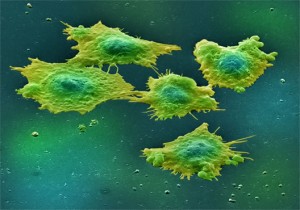“The Code raises awareness of the critical role of prevention in the fight against cancer,” says IARC Director Dr Christopher Wild. “By adopting the Code, all European citizens can take concrete actions for themselves, their friends and families to significantly reduce their risk of developing cancer.”
The Code emphasizes the importance of avoiding tobacco, alcohol, and excessive sun exposure as well as the benefits of maintaining a healthy body weight and being physically active. It also recommends participation in organized programmes for bowel, breast, and cervical cancer screening.
This edition of the Code includes other important recommendations to reduce cancer risk, such as vaccination against HPV, breastfeeding, and limiting the use of hormone replacement therapy. It also recommends finding out about potential exposure to radiation from radon at home and taking action to reduce high radon levels.
In the European Union, there are currently an estimated 2.66 million new cancer cases and 1.28 million cancer-related deaths per year. Moreover, due to the effects of population growth and ageing, the burden of cancer in Europe is projected to increase in the coming years and decades. The Code is part of continuous efforts to improve cancer control in the EU. Since the publication of the previous edition of the Code in 2003, 13 new Member States have joined the EU. The Code takes into account this enlargement, which has integrated a greater diversity of people with a variety of lifestyles and associated cancer risk into the EU.
Co-funded by the European Commission, the European Code Against Cancer is an initiative that was first launched in 1987 and has been updated as scientific and medical knowledge has progressed.
“This new Code is based on the very latest scientific evidence. It is an important tool for cancer prevention for individuals, governments, health advisers, and policy-makers. It provides a foundation for creating healthy environments and adopting healthier lifestyles to prevent cancer,” says John F. Ryan, Acting Director of the Public Health Directorate of the European Commission.
The European Code Against Cancer is available on the European Commission and IARC websites. Questions and Answers that provide additional information about the recommendations and the different types of cancer they help to prevent are also published on the IARC website.
In addition to English, the Code will soon be available in 22 other EU official languages and will be launched in several countries in the EU. The scientific justifications for the Code will also be published in a scientific journal and will be made available to the general public on the IARC website.

